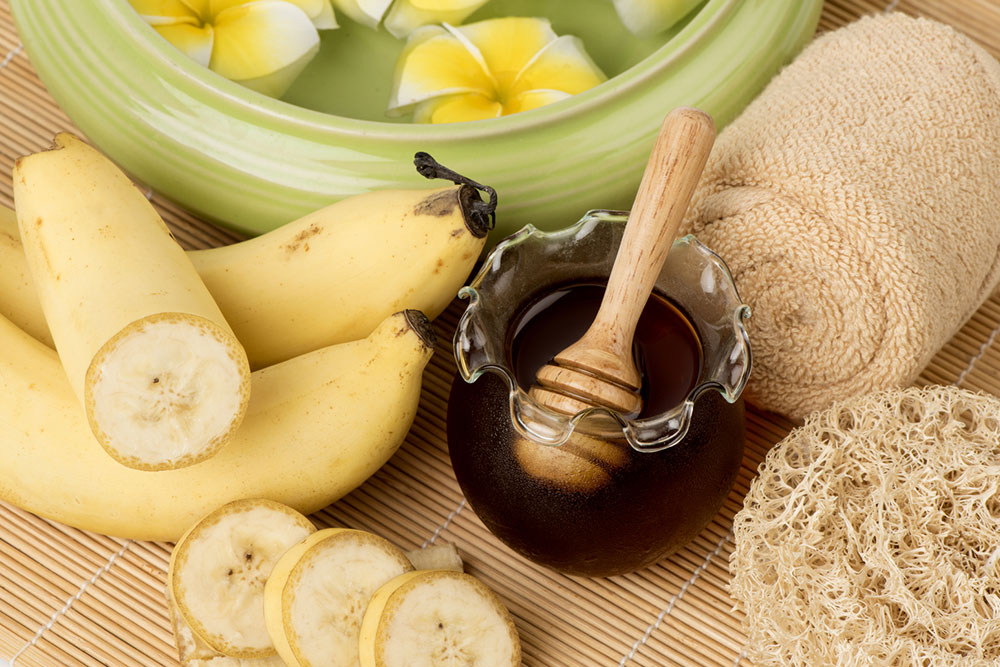Top 16 foods for managing acid reflux

Acid reflux is a digestive issue involving irritation in the lining of the esophagus due to acid or bile backing up into the region. It can be the primary symptom of a condition called gastroesophageal reflux disease (GERD), the prevalence of which is estimated to be from 18.1 to 27.8% in the country. In most cases, certain lifestyle changes, including better food choices, can help prevent and manage acid reflux.
Best foods for managing acid reflux
1. Ginger
Packed with antioxidants, ginger is an age-old remedy for digestive problems, including nausea and vomiting. Gingerol, an element found in ginger, can help in the passage of food through the stomach. So, a cup of warm ginger tea or the addition of ginger to stir-fries, gravies, and other recipes is an excellent way to help manage symptoms of acid reflux and soothe the stomach lining.
2. Lean protein
The body requires protein to boost immunity and help reduce acid reflux symptoms. Lean protein sources like fish, turkey, and chicken help regulate the production of stomach acid and manage acid reflux while not being too heavy on the stomach.
3. Spinach
This leafy green vegetable is a natural remedy for acidity. Spinach is also low in sugar and fat and rich in fiber, helping control stomach acid production. So, spinach, along with other leafy greens like kale, fenugreek, broccoli, and Brussels sprouts, should be a part of daily meals when dealing with acid reflux.
4. Bananas
Bananas have alkaline properties owing to their high potassium content and are high-fiber fruits, helping balance stomach acid levels. They also help the body stay hydrated, which can accelerate recovery from GERD.
5. Oatmeal
Oatmeal is a great source of soluble fiber, which dissolves in the stomach to form a gel-like substance. So, it prevents stomach acid displacement and is a good breakfast option for those with acid reflux. Oats could be paired with milk or yogurt or added to muesli and pancakes for an interesting twist to the conventional breakfasts.
6. Mashed potatoes
Contrary to popular belief, potatoes in their boiled and mashed form are rich sources of soluble fiber and can help manage acid reflux symptoms. It is better to avoid peeling the potatoes while mashing them, as the skin contains vitamin C, antioxidants, and magnesium, which can aid digestion.
7. Honey
Honey is more than a pleasant sweetener—it contains antioxidants and several antiviral and antibacterial properties, which can soothe the stomach when dealing with acid reflux. It has been used in Ayurveda as a natural healing agent for the stomach for centuries. One can add a drizzle of honey over fruit salads or blend it in with juices, smoothies, or shakes.
8. Eggs
Eggs are rich protein sources that help with maintaining a healthy digestive tract and immune system. Moreover, egg whites have low levels of acid, making them perfect choices for those with acid reflux. They are also excellent sources of essential nutrients like selenium, vitamins D and B12, zinc, and the antioxidants lutein and zeaxanthin. Scrambled, poached, or boiled eggs or omelets are delectable and nutritious breakfast options to consider.
9. Beans
Beans are rich in soluble fiber and less acidic. They also contain high concentrations of magnesium, which can neutralize stomach acid and help control reflux symptoms. Boiled beans alongside lunch or dinner is a good way to incorporate this vegetable into daily meals.
10. Fennel
Besides having antibacterial properties, fennel helps soothe the stomach lining, relieving heartburn associated with acid reflux. Fennel has been used as a natural remedy for bloating, gas, and digestive issues, which may accompany acid reflux. Those with heartburn may benefit from having a cup of warm fennel tea or chewing raw or toasted fennel seeds.
11. Apples
Apples are low-acid fruits containing minerals such as potassium, calcium, and magnesium, which can help relieve acid reflux symptoms. Apples also replenish the body with vital nutrients. So, it is a good idea to munch on apples or add this fruit to juices, soups, salads, smoothies, and other recipes.
12. Yogurt
This natural probiotic is a good addition to daily meals, especially when dealing with acid reflux. Yogurt is a rich protein source that helps soothe the stomach and relieve stomach discomfort associated with GERD. However, it is a good idea for those with acid reflux to only have curd when it is not too sour.
13. Coconut water
Besides acting as a natural refreshing drink, coconut water is packed with electrolytes, which can help in maintaining optimal stomach pH levels.
14. Sweet potatoes
These starchy root vegetables are rich in fiber and can help aid digestion and maintain stomach acid levels. So, one could opt for boiled and mashed sweet potatoes while dealing with frequent bouts of acid reflux. One can also incorporate other root vegetables, such as carrots, radishes, and beet while dealing with this condition.
15. Watermelons
Ripe watermelons have pH levels between 5.18 and 5.6 and have an alkalizing effect on the body, helping one deal with acid reflux. Watermelons also help provide hydration, which can help relieve heartburn.
16. Brown rice
Being a rich source of fiber, this whole grain is ideal for absorbing stomach acid and relieving GERD symptoms. So, adding whole grains like brown rice, rolled oats, and barley to daily meals can help one manage acid reflux.
In addition to having the foods mentioned above, persons with acid reflux should avoid certain trigger foods, such as processed, deep-fried, and spicy foods, which can increase inflammation and impede speedy recovery. It is also important to have plenty of water and take adequate rest to accelerate the healing process. Healthy fluids like fresh fruit juices, smoothies, and soups can also help with the condition. One should avoid soft drinks and caffeinated beverages to the best extent possible.

